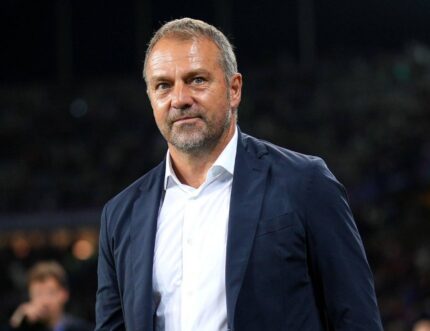England’s football squad faces a significant setback as a wave of injuries forces eight key players to withdraw from Lee Carsley’s lineup just before critical Nations League matches. The Three Lions are set to face Greece away on Thursday, followed by a home game against the Republic of Ireland at Wembley. These fixtures mark the end of Carsley’s tenure as interim manager, with Thomas Tuchel stepping in on January 1. However, his farewell is overshadowed by the absence of prominent players, complicating England’s quest to top their Nations League group.
Lee Carsley’s squad now misses notable names like Trent Alexander-Arnold, Levi Colwill, Phil Foden, Jack Grealish, Cole Palmer, Aaron Ramsdale, Declan Rice, and Bukayo Saka. In response, Morgan Rogers, Jarrod Bowen, Jarrad Branthwaite, Tino Livramento, and James Trafford have been called up as replacements, scrambling to fill the void left by these injuries. The forced reshuffle raises questions about how England will fare in these vital matches, especially with group success hanging in the balance.
The Influence of Club Managers on Player Availability
Club managers have increasingly voiced concerns about player availability for international duty, a topic brought to the forefront by Manchester City manager Pep Guardiola. Guardiola, addressing the selection of Jack Grealish, expressed frustration over players being called up despite recent injuries. Guardiola revealed that Grealish had just returned to partial training after a 17-day absence, raising doubts about his fitness level for England’s demanding schedule. “National teams always play in this period, and I’m always pleased for players to go—when they are fit and haven’t struggled in the past few weeks,” Guardiola stated.
This statement highlights the growing tension between club and country responsibilities, with managers wary of the cumulative impact of intense fixtures on player health. Guardiola’s comments suggest a communication gap between club and national team medical departments, adding a layer of complexity as clubs look to protect their players from further setbacks. Such dynamics add strain to national team managers like Carsley, who must contend with fluctuating squad availability for key matches.
Impact of Arsenal Injuries: Saka and Rice Sideline Struggles
Arsenal also finds itself entangled in this national versus club tug-of-war, as the injuries of Bukayo Saka and Declan Rice further weaken England’s lineup. Both players sustained injuries during Arsenal’s recent 1-1 draw with Chelsea, with Arsenal manager Mikel Arteta providing a bleak outlook on their conditions. “They don’t look very good,” Arteta shared post-match, indicating uncertainty about the length of their recovery periods. Neither Saka nor Rice was able to complete the game, raising concerns over their readiness for both club and country duties.
The absence of Saka and Rice deprives England of two versatile and influential players, adding to Carsley’s challenges in preparing for the crucial Nations League fixtures. Their injuries reflect a larger issue of player fatigue and injury risks that come with balancing domestic and international schedules. Arteta’s comments suggest that players are reaching physical limits, adding weight to the argument for a more manageable fixture calendar.
Fixture Congestion in England: The Ongoing Strain on Players’ Fitness
The wave of injuries plaguing England’s squad underscores the toll of fixture congestion on players’ physical health. Increased schedules, particularly for top players involved in both domestic leagues and international tournaments, have led to growing concerns about long-term fitness. Managers, medical staff, and players themselves are beginning to voice these issues publicly. According to Opitanglobamedia Football sources, club managers are applying pressure on players to prioritize recovery over international duties, aiming to prevent burnout and reduce injury risks during the crowded season.
The Nations League campaign and other international competitions add to the cumulative demands placed on players, who now face a grueling cycle of high-stakes games. With England missing key players in critical fixtures, the impact of fixture congestion on team performance is evident. This development prompts a broader debate on how the sport can balance competitiveness with sustainable athlete health, especially as club and international commitments become increasingly demanding.














